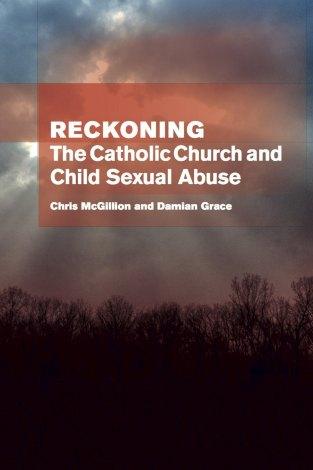|
An adequate response to child sexual abuse
By Andrew Hamilton
Reckoning: the Catholic Church and Child Sexual Abuse, written by Chris McGillion and Damian Grace, and jointly published by Eureka Street and ATF Press, offers a useful map of the journey that has led to the Royal Commission into Sexual Abuse. It recalls how the widespread sexual abuse of children within the Church came to prominence in Australia, outlines the variety of responses to it, and reflects on the explanations given for it. The book is modest and even in its tone. It offers a broad perspective on the challenges that will arise from ensuring that children are safe in the future. The dimensions of an adequate response to child sexual abuse by the Catholic Church are now fairly clear. First, children must be protected from abusive behaviour. This requires curtailing the opportunities for potential abusers to meet, groom and abuse children. It also requires preparing, monitoring and supervising church representatives who are in contact with children. Second, the criminal gravity of sexual abuse must be recognised, and the response both to victims and offenders be proportionate to the seriousness of the crime. This requires responding professionally and transparently to accusations of abuse, excluding from public ministry those who have offended, and continuing to monitor any offenders who remain within religious communities. Third, the serious harm suffered by people who were abused as children must be recognised. This is done by ensuring they receive the pastoral care and counseling they desire, and can claim compensation. Finally, the Catholic Church must take responsibility for the sexual abuse inflicted by its representatives and for its concealment, and for ensuring that aspects of its culture that encourage abuse are remedied. For this, serious and independent study will be necessary. McGillion and Grace detail the history of the often catastrophic failure in each of these dimensions. It also records considerable, if uneven, progress in some areas. Certainly, potential offenders would find it much harder today to abuse children than they did forty years ago. Their access to children would be limited and monitored, and their behaviour would be more closely scrutinised. If their abuse were reported to their religious superiors they would face a strong risk of criminal prosecution and of exclusion from ministry. Victims of abuse, too, now have some processes through which they may seek acknowledgment of abuse and compensation for it. These changes, of course, are partial and are largely due to the unrelenting focus of the media on sexual abuse. But they also reflect the pressure from committed people within the Church for change even in the face of resistance and incomprehension. The challenges that remain are no less daunting. They are less about whether these large goals need to be realised; more about how to realise them and to enshrine them in Catholic culture. This requires a conversion of hearts as well as good process. On the conceptual level the need to safeguard children and to treat sexual abuse as a crime seems to be generally accepted. The need for severity in dealing with offenders, for accountability in people working with children and for regulation of the contact between adults and children, is also widely accepted. The challenge is to embody these things in reflective practice. The rhetoric of putting the victim first, of providing pastoral care and access to compensation is now generally adopted. The larger challenge is to think, feel and act out of these sentiments. It is easy to talk the talk; harder to walk the walk. There is also an inherent tension between the need of victims to be believed and the need to establish the credibility of claims of abuse. Not simply the welfare of victims but the good name and lives of people accused of abuse are at stake and demand a process of discernment. The proposal that claims for compensation should be decided by a tribunal independent of the institutions in which abuse has taken place has received widespread support. The challenge will again lie in the detail. We might expect that research into the causes and history of sexual abuse will continue and increase. As part of its owning of the crimes that have flourished within it, the challenge for the Church is to take such research seriously, particularly when it touches on the part played by such aspects of Catholic life, culture and governance as clerical celibacy, attitudes to women and sexual morality, and clericalism. Research on these things needs to be done comparatively, not to let the Church off the hook, but to provide control groups that can shows which factors are significant in causing sexual abuse. Finally a large challenge, discussed by the writers, will be how far to rely on a detailed regulatory regime. An outsider’s view of governmental practice in the area of child protection suggests that a highly regulated environment can encourage ticking off boxes at a cost to children's welfare. In dealing with people, including children, the ultimate goal must not be simply to eliminate destructive relationships but to foster good, responsible relationships.
|
.
Any original material on these pages is copyright © BishopAccountability.org 2004. Reproduce freely with attribution.
